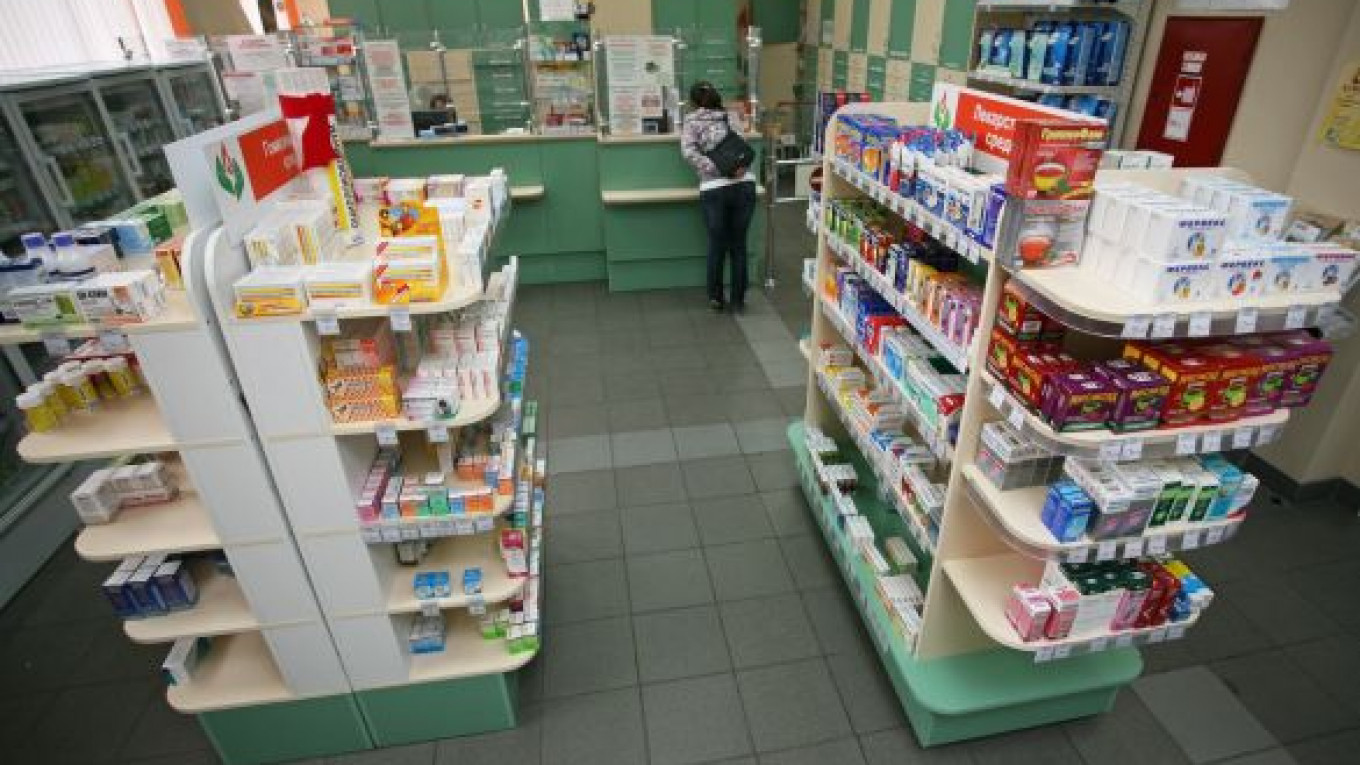Manufacturers of vitamins and dietary supplements will be regulated in an effort to ensure quality in an industry where up to 50 percent of products are falsified, federal authorities said Friday at an international conference on trends in the Russian food industry.
Mislabeling products and using poor ingredients are some of the common problems in the industry.
The Russian Union of Industrialists and Entrepreneurs is planning to create a working group that will include representatives from relevant government agencies to draft an industry standard for the production and circulation of health products.
“[Falsification] is completely starting to compromise the industry and, as a consequence, stalls its development,” State Duma Deputy Alexander Prokopyev told The Moscow Times.
In addition to his political duties, Prokopyev serves as development director of Evalar, Russia’s largest manufacturer of natural preparations, which his mother founded. He got into politics partly as a result of the frustration he felt while competing with unscrupulous entrepreneurs.
He has since led the movement for standardization and will participate in drafting the new rules.
The new document will include points from similar documents drafted by the International Alliance of Dietary and Food Supplement Associations and will also align with standards set by the World Trade Organization, according to the union’s press release.
In the future, it could also become the basis for regulations used by the Belarus-Kazakhstan-Russia customs union.
Prokopyev said he does not want to blindly copy international documents. His proposal is to raise requirements gradually, such as annually increasing the number of inspections at manufacturing facilities.
Federal officials are advocating high fines for producers who falsify products, but they rejected the option of criminally charging offenders.
“Based on our data, irregularities between the product and its label are, depending on different criteria, 1 to 50 percent,” said Alexander Zazhigalkin, deputy head of the Federal Agency on Technical Regulation and Metrology. “We can arrest everyone, but how will we live then?”
Currently, there is no single regulating document for the vitamins industry, much less a concrete definition of what products it includes, said Anatoly Kutishenko, deputy head of the union’s health committee.
An entrepreneur has to flip through 50 documents, 10 letters and recommendations from the Federal Consumer Protection Service to get to some information on the industry, and even then it is frequently implicit.
Another obstacle is the declining quality of standard inspectors and initiative from businesses, Zazhigalkin said.
The Russian market for vitamins and dietary supplements grew by 13 percent in 2011 to reach 42 billion rubles ($1.2 billion), according to a study by Euromonitor International.
Experts predict that the market will continue to grow by 5 percent on average for the next five years and will total 54.7 billion rubles in 2016.
A Message from The Moscow Times:
Dear readers,
We are facing unprecedented challenges. Russia's Prosecutor General's Office has designated The Moscow Times as an "undesirable" organization, criminalizing our work and putting our staff at risk of prosecution. This follows our earlier unjust labeling as a "foreign agent."
These actions are direct attempts to silence independent journalism in Russia. The authorities claim our work "discredits the decisions of the Russian leadership." We see things differently: we strive to provide accurate, unbiased reporting on Russia.
We, the journalists of The Moscow Times, refuse to be silenced. But to continue our work, we need your help.
Your support, no matter how small, makes a world of difference. If you can, please support us monthly starting from just $2. It's quick to set up, and every contribution makes a significant impact.
By supporting The Moscow Times, you're defending open, independent journalism in the face of repression. Thank you for standing with us.
Remind me later.






